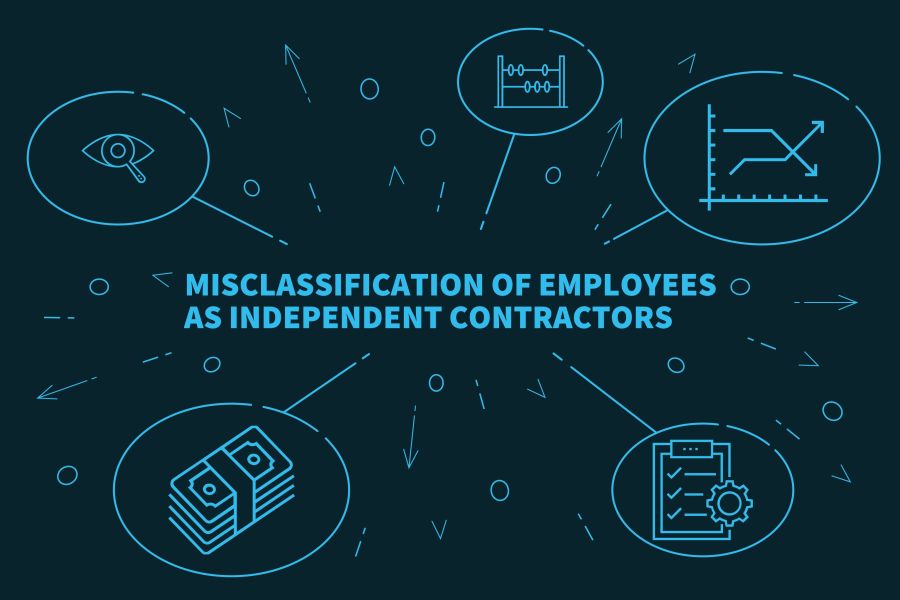Here are some of the key tax-related deadlines affecting businesses and other employers during the first quarter of 2023. Keep in mind that this list isn’t all-inclusive, so there may be additional deadlines that apply to you. If you have questions about filing requirements, contact us. We can ensure you’re meeting all applicable deadlines. January 17 (The usual deadline of January 15 is on a Sunday and January 16 is a federal holiday) Pay the final installment of 2022 estimated tax. Farmers and fishermen: Pay estimated tax for 2022. If you don’t pay your estimated tax by January 17, you must file your 2022 return and pay all tax due by March 1, 2023, to avoid an estimated tax penalty. January 31 File 2022 Forms W-2, “Wage...

If you own a business, you may wonder if you’re eligible to take the qualified business income (QBI) deduction. Sometimes this is referred to as the pass-through deduction or the Section 199A deduction. The QBI deduction is: Available to owners of sole proprietorships, single member limited liability companies (LLCs), partnerships, and S corporations, as well as trusts and estates. Intended to reduce the tax rate on QBI to a rate that’s closer to the corporate tax rate. Taken “below the line.” In other words, it reduces your taxable income but not your adjusted gross income. Available regardless of whether you itemize deductions or take the standard deduction. Taxpayers other than corporations may be entitled to a deduction of up to 20% of their QBI. For 2022, if...
As posted to IRS.gov as Tax Tip 2022-117 on 8/2/2022 A business might pay an independent contractor and an employee for the same or similar work, but there are key legal differences between the two. It is critical for business owners to correctly determine whether the people providing services are employees or independent contractors. An employee is generally considered anyone who performs services, if the business can control what will be done and how it will be done. What matters is that the business has the right to control the details of how the worker's services are performed. Independent contractors are normally people in an independent trade, business or profession in which they offer their services to the public. Independent contractor vs. employee Whether a worker is an independent...
If you’re launching a new business venture, you’re probably wondering which form of business is most suitable. Here is a summary of the major advantages and disadvantages of doing business as a C corporation. A C corporation allows the business to be treated and taxed as a separate entity from you as the principal owner. A properly structured corporation can protect you from the debts of the business yet enable you to control both day-to-day operations and corporate acts such as redemptions, acquisitions and even liquidations. In addition, the corporate tax rate is currently 21%, which is lower than the highest noncorporate tax rate. Following formalities In order to ensure that a corporation is treated as a separate entity, it’s important to observe various formalities required by your state....
These days, most businesses have some intangible assets. The tax treatment of these assets can be complex. What makes intangibles so complicated? IRS regulations require the capitalization of costs to: Acquire or create an intangible asset, Create or enhance a separate, distinct intangible asset, Create or enhance a “future benefit” identified in IRS guidance as capitalizable, or “Facilitate” the acquisition or creation of an intangible asset. Capitalized costs can’t be deducted in the year paid or incurred. If they’re deductible at all, they must be ratably deducted over the life of the asset (or, for some assets, over periods specified by the tax code or under regulations). However, capitalization generally isn't required for costs not exceeding $5,000 and for amounts paid to create or facilitate the creation of...
Businesses shut down for many reasons. Some of the reasons that businesses shutter their doors: An owner retirement, A lease expiration, Staffing shortages, Partner conflicts, and Increased supply costs. If you’ve decided to close your business, we’re here to assist you in any way we can, including taking care of the various tax obligations that must be met. For example, a business must file a final income tax return and some other related forms for the year it closes. The type of return to be filed depends on the type of business you have. Here’s a rundown of the basic requirements. Sole Proprietorships. You’ll need to file the usual Schedule C, “Profit or Loss from Business,” with your individual return for the year you close the business. You...
These days, most businesses buy or lease computer software to use in their operations. Or perhaps your business develops computer software to use in your products or services or sells or leases software to others. In any of these situations, you should be aware of the complex rules that determine the tax treatment of the expenses of buying, leasing or developing computer software. Software you buy Some software costs are deemed to be costs of “purchased” software, meaning it’s either: Non-customized software available to the general public under a nonexclusive license, or Acquired from a contractor who is at economic risk should the software not perform. The entire cost of purchased software can be deducted in the year that it’s placed into service. The cases in which the...
No one needs to remind business owners that the cost of employee health care benefits keeps going up. One way to provide some of these benefits is through an employer-sponsored Health Savings Account (HSA). For eligible individuals, an HSA offers a tax-advantaged way to set aside funds (or have their employers do so) to meet future medical needs. Here are the key tax benefits: Contributions that participants make to an HSA are deductible, within limits. Contributions that employers make aren’t taxed to participants. Earnings on the funds in an HSA aren’t taxed, so the money can accumulate tax-free year after year. Distributions from HSAs to cover qualified medical expenses aren’t taxed. Employers don’t have to pay payroll taxes on HSA contributions made by employees through...
How much can you and your employees contribute to your 401(k)s next year — or other retirement plans? In Notice 2022-55, the IRS recently announced cost-of-living adjustments that apply to the dollar limitations for pensions, as well as other qualified retirement plans for 2023. The amounts increased more than they have in recent years due to inflation. 401(k) plans The 2023 contribution limit for employees who participate in 401(k) plans will increase to $22,500 (up from $20,500 in 2022). This contribution amount also applies to 403(b) plans, most 457 plans and the federal government’s Thrift Savings Plan. The catch-up contribution limit for employees age 50 and over who participate in 401(k) plans and the other plans mentioned above will increase to $7,500 (up from $6,500 in 2022). Therefore,...
The Social Security Administration recently announced that the wage base for computing Social Security tax will increase to $160,200 for 2023 (up from $147,000 for 2022). Wages and self-employment income above this threshold aren’t subject to Social Security tax. Basics about Social Security The Federal Insurance Contributions Act (FICA) imposes two taxes on employers, employees and self-employed workers. One is for the Old Age, Survivors and Disability Insurance program, which is commonly known as Social Security. The other is for the Hospital Insurance program, which is commonly known as Medicare. There’s a maximum amount of compensation subject to the Social Security tax, but no maximum for Medicare tax. For 2023, the FICA tax rate for employers is 7.65% — 6.2% for Social Security and 1.45% for Medicare (the...











